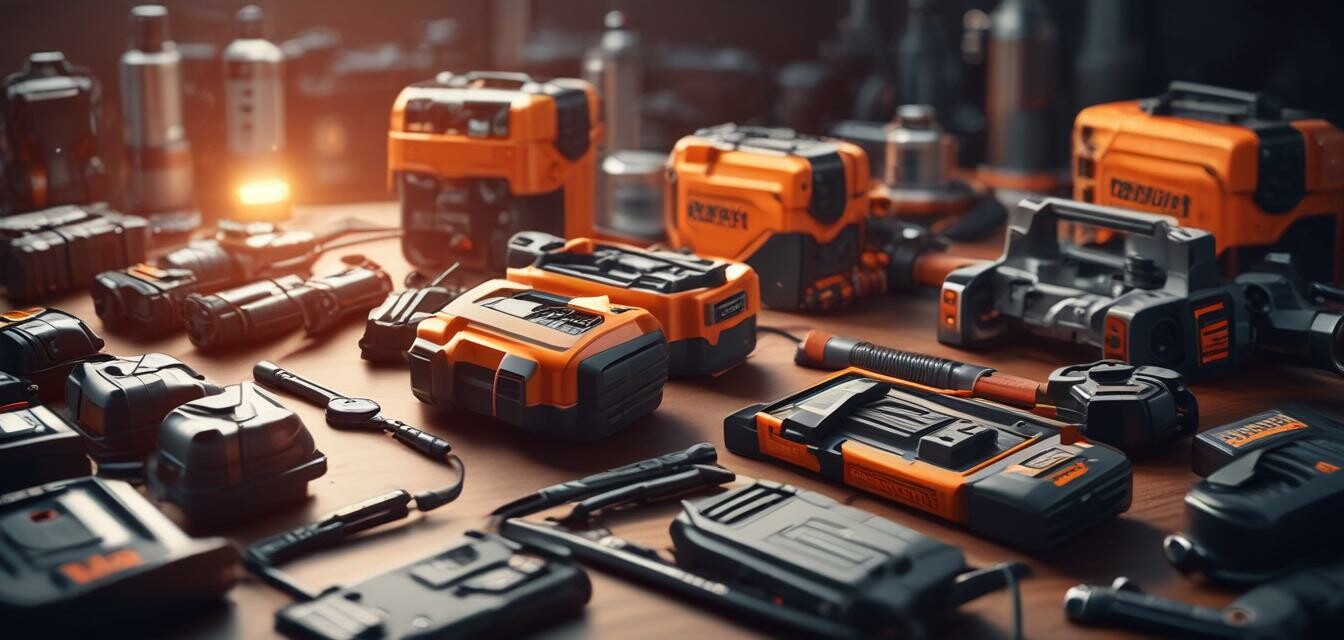
Innovations in Battery Life for Power Tools
Key Takeaways
- Battery technology advancements are crucial for enhancing the performance of portable power tools.
- The introduction of lithium-ion and solid-state batteries has significantly improved battery life.
- Smart battery management systems ensure safety and longevity in tool usage.
- As the demand for sustainable solutions grows, eco-friendly battery innovations are emerging.
In recent years, the power tools industry has undergone significant transformations, particularly in battery technology. With the ever-evolving demands of contractors and DIY enthusiasts, advancements in battery life are critical in ensuring tools are not just efficient but also reliable and user-friendly. In this article, we will delve into the remarkable innovations transforming how we think about battery life in power tools as we approach 2025.
Understanding battery technology advancements
Battery technology has drastically evolved, moving from older nickel-cadmium (NiCd) batteries to modern lithium-ion (Li-ion) models. This transition has greatly impacted the performance and efficiency of power tools. Here's a brief overview of the various battery technologies commonly used today:
| Battery Type | Advantages | Disadvantages |
|---|---|---|
| Nickel-Cadmium (NiCd) | Low cost, good discharge rates | Memory effect, toxic disposal |
| Lithium-Ion (Li-ion) | Higher energy density, lightweight, no memory effect | More expensive, sensitive to temperature |
| Solid-State | Safer, longer life span, potential for greater energy density | Still in development, higher manufacturing costs |
Key innovations in battery life
As we move into 2025, here are some key innovations making waves in the battery life of portable power tools:
1. Improved Energy Density
The latest lithium-ion batteries have made strides in energy density, allowing for a smaller form factor while providing longer usage times. This means that tools can remain lightweight without compromising on performance.
2. Smart Battery Management Systems (BMS)
Modern tools utilize advanced battery management systems to monitor battery health and optimize charging cycles. This not only prolongs battery life but also enhances safety, preventing overheating and overcharging.
3. Fast Charging Technologies
Innovations in charger technology are allowing users to recharge their batteries faster than ever. Fast charging systems can power a battery back to 80% in under an hour, readying tools for continuous use.
4. Environmentally-Friendly Batteries
With a growing emphasis on sustainability, the industry is seeing the emergence of eco-friendly battery solutions. Using recyclable materials or developing biobatteries can significantly reduce the carbon footprint of power tools.
5. Wireless Power Transfer
Wireless charging is becoming more prevalent, allowing for hassle-free charging solutions. This innovation provides convenient options for users who don’t want to deal with plugging in cords.
Impact of these advancements on stakeholders
The innovations in battery technology not only affect the end-users, i.e., contractors and DIY enthusiasts, but also manufacturers and retailers:
- Contractors: Longer battery life means enhanced productivity and less downtime on job sites.
- Manufacturers: Advanced batteries can lead to higher quality and more competitive products in the market.
- Retailers: Increased demand for newer, efficient models can drive sales and customer loyalty.
Pros
- Extended battery life enhances tool performance.
- Smart BMS systems offer safety features and longevity.
- Fast charging minimizes downtime.
- Environmentally-friendly options support sustainability.
Cons
- Higher costs associated with advanced technology.
- Some users may find compatibility issues with older tools.
- Environmental concerns around battery disposal still exist.
The future landscape of power tools
As technology continues to advance, users can expect even greater efficiency and reliability from their power tools. The push for innovation in battery life will likely unveil more sophisticated tools that enhance usability.
Conclusion
In summary, the power tools industry is on the brink of an exciting era driven by innovations in battery life. Stakeholders in this space must stay informed of the latest advancements to harness the full potential of their tools. With proper insight, contractors and DIY enthusiasts can ensure that they are equipped with the tools that not only meet but surpass their demands. For more insights into the latest equipment, check our comprehensive section on industry trends.
